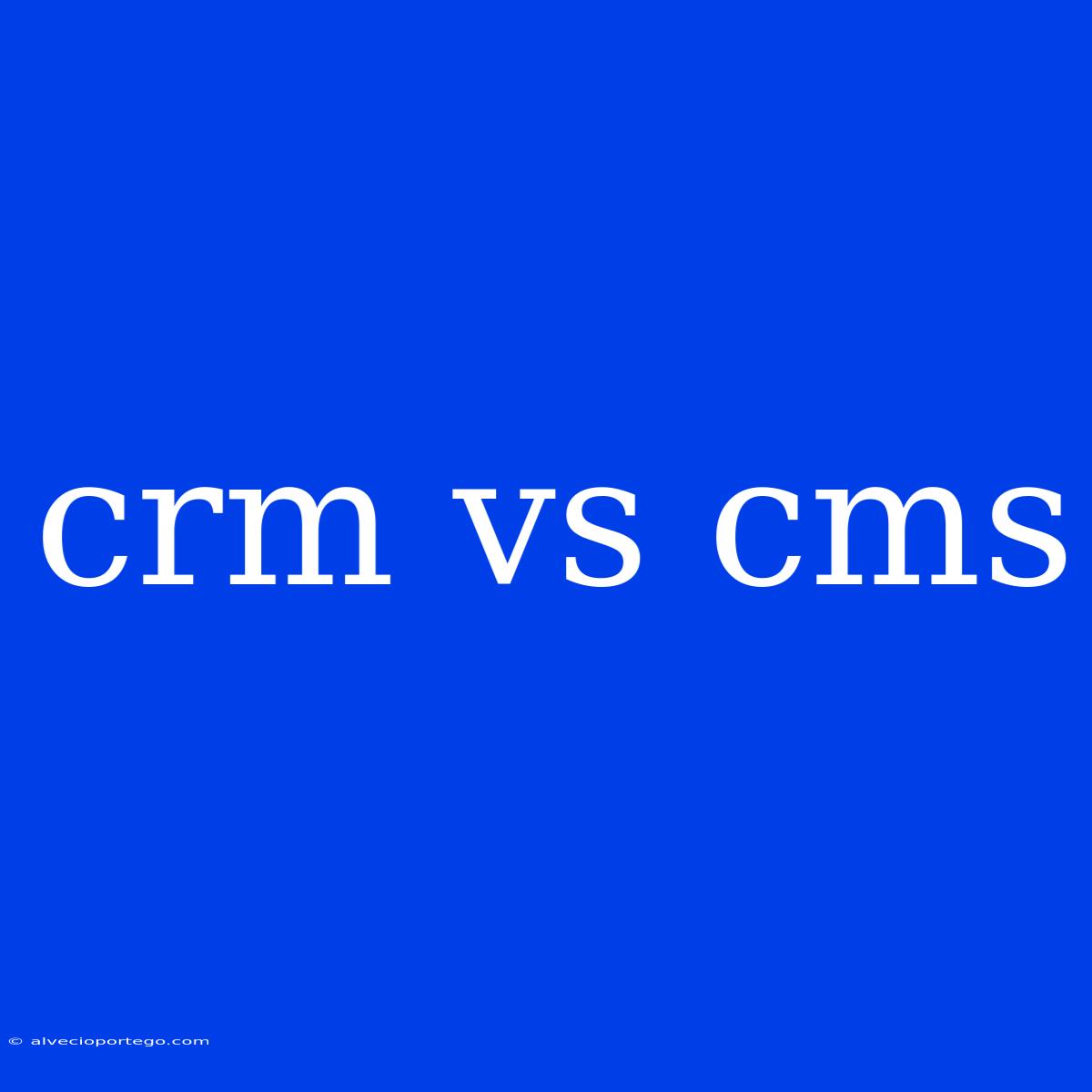CRM vs CMS: Understanding the Difference
Both CRM and CMS are essential tools for businesses looking to manage their operations efficiently. However, they serve distinct purposes and cater to different needs. Let's delve deeper into the differences between CRM and CMS:
What is CRM?
CRM (Customer Relationship Management) is a software solution that helps businesses manage and improve their customer interactions. It consolidates all customer data in one place, enabling companies to:
- Track customer interactions: Record every interaction a customer has with your business, from emails to calls to website visits.
- Segment customers: Divide customers into groups based on demographics, purchase history, and behavior to target them with personalized marketing campaigns.
- Automate marketing tasks: Create automated email sequences, track campaigns, and analyze their effectiveness.
- Improve customer service: Offer faster and more efficient customer support by providing agents with a complete view of the customer's history.
Some popular CRM systems include:
- Salesforce
- HubSpot
- Zoho
- Microsoft Dynamics 365
- Pipedrive
What is CMS?
CMS (Content Management System) is a platform that simplifies the creation, management, and publication of digital content. It allows businesses to easily:
- Create and edit content: Write blog posts, articles, web pages, and other types of content without needing coding knowledge.
- Manage website structure: Organize content into different categories and pages, ensuring a user-friendly navigation experience.
- Publish content: Make content accessible to your audience online, controlling the visibility and access levels.
- Track website performance: Monitor website traffic, engagement, and other key metrics to optimize content strategy.
Some popular CMS platforms include:
- WordPress
- Drupal
- Joomla
- Wix
- Squarespace
CRM vs CMS: Key Differences
| Feature | CRM | CMS |
|---|---|---|
| Focus | Managing customer relationships and interactions | Creating and managing website content |
| Target Audience | Sales, Marketing, Customer Service teams | Web developers, content creators, marketers |
| Core Functionality | Customer data management, sales automation, marketing automation, customer support | Content creation, website management, publishing |
| Examples | Salesforce, HubSpot, Zoho | WordPress, Drupal, Joomla |
Can CRM and CMS work together?
While CRM and CMS serve different purposes, they can work seamlessly together to create a powerful business solution. By integrating a CRM system with your CMS, you can:
- Personalize website content based on user data: Deliver tailored experiences to individual customers.
- Track customer behavior on your website: Gain insights into customer preferences and purchase intentions.
- Create targeted content for specific customer segments: Develop content that resonates with different customer groups.
Examples of CRM and CMS integration:
- HubSpot CRM and WordPress: Integrate to manage contacts, track website traffic, and deliver personalized content.
- Salesforce and Drupal: Connect to create personalized landing pages, manage leads, and track customer journey.
Conclusion
CRM and CMS are both valuable tools for businesses. By understanding their distinct roles and potential for integration, businesses can leverage these solutions to streamline operations, improve customer relationships, and ultimately achieve greater success.

